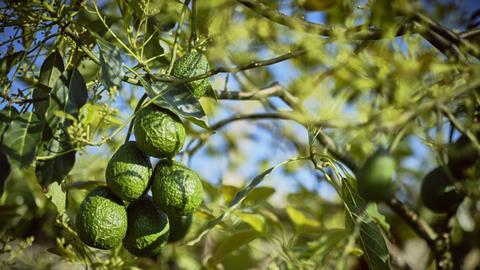World Avocado Organisation discredits NGO paper based on ‘incorrect facts from non-scientific sources’
The World Avocado Organisation (WAO), which represents global avocado growers, has hit back at a report published by NGO Christian Aid that singles out “thirsty” avocado plants as key contributors to water shortages and high carbon emissions in drought-prone producer countries.
The Christian Aid study on climate change and the future of avocado production, which was picked up by PA Media UK and distributed across different media in the UK and Europe this week (15 May), is both inaccurate and unscientific, WAO said in a statement released today.
The organisation said it “deplores” the paper ‘Getting Smashed, The Climate Danger Facing Avocados’, which it claims uses facts from “an extensive range of non-scientific sources such as gardening magazine articles and ‘experts’ who have no relevant environmental expertise”.
Expressing his frustration, WAO chairman Zac Bard said: “We are surprised to find that a very reputable NGO like Christian Aid - which is known for its commitment to the eradication of poverty - has released a paper on environmental issues, which lacks facts based on detailed research and includes no solid support from independent third parties specialised in the field of sustainability or avocado production. Moreover, we were not contacted to comment on this paper before its release.”
As an industry expert, WAO said it can refer to a wide range of scientific studies and relevant data that can help give a fuller picture of the reality of global avocado production backed by independent, third-party research.
In its statement the organisation went on to refute, referencing independent research, some of the “incorrect allegations” made in the Christian Aid report.
On the water footprint of avocados, WAO said the global average water footprint of avocados is considerably lower than that of other food products such as coffee (10 times lower), chocolate (nine times lower), beef (eight times lower) or olive oil (seven times) and comparable to other fruit and vegetables.
It added that, when avocados are grown in areas where there is less rainfall and additional water irrigation is needed, sustainable drip technologies are used to significantly reduce water usage by up to 50 per cent in certain cases.
Regarding the carbon footprint of avocados, WAO cites independent research that indicates the carbon footprint of avocados is comparable to strawberries, raspberries and plums, and much lower than animal-based products such as beef (25 times higher than avocados).
As for transportation, the vast majority of avocados destined for Europe arrive via sea freight, which has been proven to emit 25 times less emissions than vehicle transportation and 145 times less emissions than air freight, according to the International Chamber of Shipping, WAO said.
Other Christian Aid allegations, such as linking avocado production to deforestation and biodiversity, are also refuted in the WAO rebuttal.
“Firstly, avocados are grown on perennial trees, which can be better for the environment than other crops as they absorb a great amount of carbon dioxide (at a rate of 20 kg per year) and foster a more hospitable soil for other plants as they have a reduced amount of soil and water erosion compared to annual crops,” WAO said.
“It is important to note that avocado-growing countries have strict laws on deforestation and the protection of the land, and any avocado supplies to European markets are subject to strict audits and require certification from internationally recognised programmes for ethical and sustainable farming practices.”
WAO ended the statement saying that “it deplores that the paper casts a negative light on the avocado culture which creates many jobs and stable revenue for many small and medium-sized growers who are constantly striving to become even more sustainable”.
WAO said it welcomed further questions to discuss the matter and provide a more accurate understanding of the environmental impact of avocado production.




